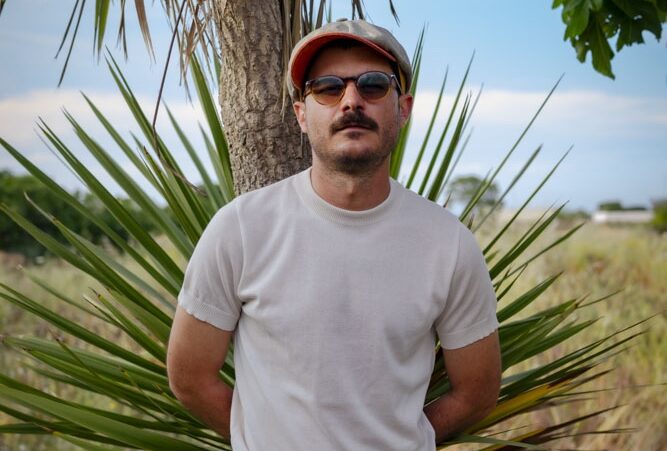Founded by Benedetto Dabbicco, Apulianize was created to enhance the Apulian textile supply chain, combining creativity, local identity, and the regional production community. The project, which began as an e-commerce platform, goes beyond offering clothing: it promotes a short and transparent supply chain model, where ethics, authenticity, and sustainability are integral to every garment.
We met Benedetto to discuss his vision, his collaborations with Marchi&Fildi and Filidea, and the value that certified yarns bring to the project.
Do your customers understand and appreciate this choice not only for its quality but also for its ethical dimension?
Yes, especially our loyal customers. They don’t just embrace the philosophy—they are struck by the idea of being able to engage with someone who knows the entire supply chain. For us, that’s the real added value: telling the story of where the sweater was made, who produced the yarn, how it was dyed, and with which certifications. We don’t want to keep these processes hidden—we want to promote them. This choice strengthens the sense of trust and mutual responsibility between those who produce and those who wear our garments.
Which products do you sell the most? And which yarns are most in demand?
For winter, we offer a lot of wool, often blended with polyamide, especially in men’s knitwear. But with Marchi&Fildi we are developing a four-season line we call Vivaldi, made with yarns such as Tizzana and Victoria. The idea is to offer versatile and durable garments that preserve the quality of raw materials while encouraging a more mindful approach to consumption.
Your choice of Tizzana is quite interesting: what inspired you to use it?
Its transeasonal nature is a major strength, combined with a mix of softness and sheen. The silk and micromodal blend is truly special: it gives garments unique effects and, at the same time, a pleasant feel for those who wear them. It’s a yarn that perfectly reflects our idea of authenticity: combining aesthetics and comfort with a responsible selection of fibers.
Victoria, on the other hand, is a compact organic cotton yarn certified GOTS. How do customers perceive the value of this certification?
The end customer immediately realizes it’s a higher-level yarn. The GOTS label represents an important guarantee. It’s true that not everyone is familiar with fiber pricing or the technical weight of certain certifications, and they can sometimes feel confused. That’s why I consider part of my role to educate people, guiding them toward a better understanding of the meaning behind these choices. Ultimately, offering a certified garment means giving the customer the certainty of an authentic product that respects both the environment and the people involved.
Is your customer base mainly local?
We promote short supply chains: production is local, and our first market is Apulia. However, through e-commerce, we also receive international orders. For logistics, we collaborate with La Caravella Scout, a social project that ensures both efficiency and added value. It’s a way of linking our work to a network that uplifts the local area and the people working within it.
So the quality of your products doesn’t end with their material characteristics, but is part of a broader project.
Exactly. We don’t stop at the product itself. For example, we are preparing an initiative to accompany the opening of our store: a slogan that goes something like—“If I don’t see you again for five years after your purchase, I’m happy.” Because that would mean the garment is lasting over time. If needed, we even put customers in touch with someone who can handle repairs. It’s a way to extend the life of garments and give greater value to the chosen raw materials, with respect for both the environment and the people involved in the supply chain.


